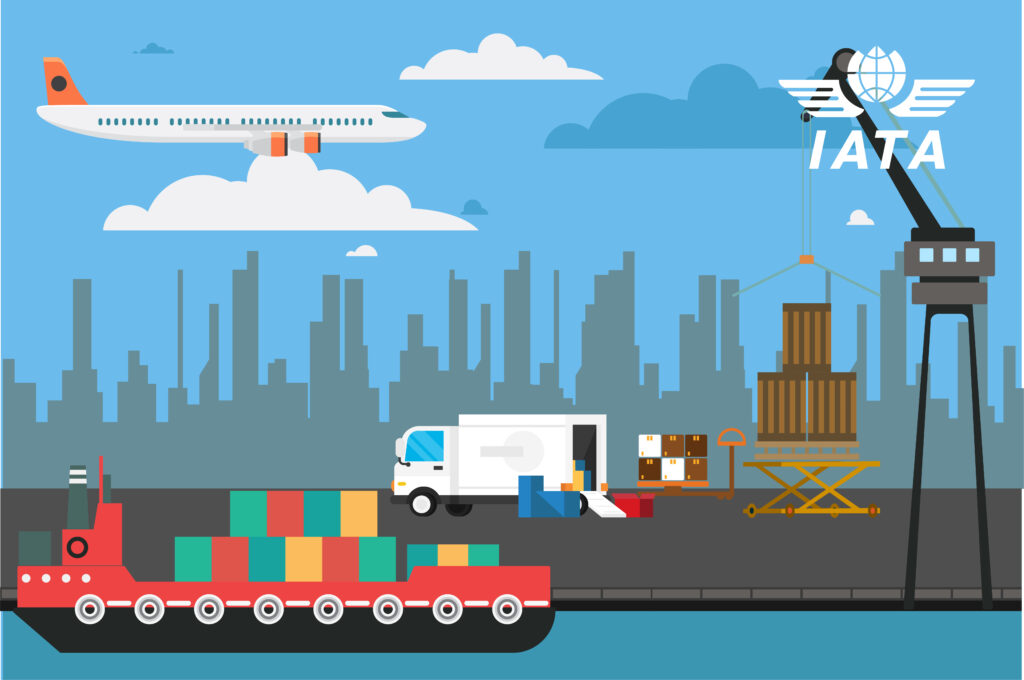Logistics
This refers to the overall management that controls, implements, plans and monitors the flow of goods being transported and delivered. These composite structures have long been part of our daily life. Logistic management ensures that goods and other merchandise are being delivered on time and always where they are needed.
Freight Forwarding
This refers to the firm or industry that specializes in organizing, storage and shipping for corporations or individuals. This is also necessary in order to deliver or to get the goods from the manufacturer or the producer to its final point of distribution. It provides a range of services, including preparation of shipping, booking cargo space, negotiating freight charges, filling of insurance claims, tracking, transportation and consolidating documents with Back Office Outsourcing Solutions, which specializes in this field of service.
Transportation is considered as a major contributor to the economy all over the continent. It connects the business to its supply chain physically, such as suppliers and their customers. This is the role of transportation in the logistics functions to the larger economy — moving goods from the storage to the locations where they are needed or required, including proper documentation. Cargowise Back Office Operators will guarantee a detailed and accurate records of the goods being transferred or delivered. That is why it is important to ensure its safety and security. Below are the lists of regulating bodies that monitor the operations:
Australian Government

Freight forwarding and logistics industry is an essential component of the national economy, where the sector accounts for approximately 8.6 percent of gross domestic product. An efficient, sustainable and cost-effective freight forwarding and logistics industry enabled through partnerships with all levels of government supports Australia’s growing economy and quality of life aspirations which is why the Australian Government is playing a central role and is working with the territory government and state to develop a coordinated and consistent approach to transport security.
The Australian Government has continuously committed itself to develop a national freight and supply chain strategy to increase productivity and efficiency and to keep Australia’s freight supply chain alive.
Until now, Australia is still connected to the global economy through shipping and air movements which transport bulk commodities and general cargo that is why the continuing growth in freight volumes has given rise to a scale of increasingly complex challenges for the Australian community. In recognition of all of these levels, government and industry have decided and agreed on the need to apply to a national focus and effort to deliver a streamlined, integrated and logistics system, capable of efficiently moving freight through an international gateway and domestically.
Australian Freight Councils Network (AFCN)
Australian Freight Councils Network is a coalition of logistics and freight councils that operates within each State of Australia. These Councils are jointly funded and supported by Australian and State Governments with support from the Australian Logistics Industry. They provide a unique, industry-driven forum bringing together within Australia’s Freight logistics chains.
The key role of Australian Freight Councils Network is to address constraints and impediments for efficient operation in the supply chain in Australia’s logistics and transport in general. They can also add value to industry and governments by facilitating the exchange of information and raising the industry awareness of government initiatives and regulations. Furthermore, they are also well placed at the operational level to conduct research projects which involve small and medium enterprises and freight forwarders in regional areas.
Australian Logistics Council (ACL)

The Australian Logistics Council is the association for the freight transport and logistics industry that represents the major Australian logistics supply chain customers, providers, infrastructure owners, and suppliers. This agency provides national regulation ensuring productivity and efficiency, including safety in the logistics and freight industry in Australia.
The Australian Logistics Council is also working with all levels of government to ensure the needs of the logistics industry in its investment and policy decisions while focusing its advocacy efforts on these areas with the aim of improving supply chain efficiency:
- Supply Chain Logistics Safety
- Infrastructure and Regulation
- Technology
Australian Logistics Council is focusing on these key issues as they recognize the importance of efficient supply chains to Australia’s economic and social prosperity. Because if there are appropriate national infrastructure, high performing supply chains, and seamless operation transfer across the logistics industry, the flow of goods from production to consumption will be done smoothly.
National Surface Transport Security Strategy (NSTSS)
Surface transport systems are attractive to terrorists, particularly urban mass passenger systems because they concentrate large numbers of people in urban areas at peak periods at predictable times. They are most likely to be the main target of terrorism.
Surface transport systems include heavy and light rail operations, buses, ferries, and other road vehicles. These operations are important to the efficient movement of moving and delivering goods and services, and they are critical to the strength of Australia’s economy.
Over the years, Australia has been a terrorist target and due to that reason, the National Transport Security Strategy (NTSS) was agreed as a multi-modal response to the events with regards to terrorist attacks on the transport sector. Accompanied by the national counter-terrorism and emergency management as well as other transport security group in the maritime and aviation sectors, they are aiming to provide security against threat and terrorism for all transport system.
Maritime Security Guards (MSG)
The Maritime Security Guards (MSG) is a government body under the Federal Maritime Commission (FMC) that safeguards the maritime industry against unlawful interference in maritime and ship operations. They will monitor all shipping vessels and provide security guard services for all facilities including the cargos to ensure the safety and security of the transport.
Maritime Security Guards are consistent and discrete according to their location requirements and they can also provide key holding and alarm response services. And when there’s piracy risk Armed Maritime Security Guards can provide for maritime shipping and leisure vessels. They are all well-trained, accredited and licensed personnel who are sent to reduce the risk of piracy dramatically by providing rapid responses.
International Civil Aviation Organization (ICAO)
The International Civil Aviation Organization (ICAO) is a specialized government agency of the United Nation established in 1944 to manage and govern the administration of the International Civil Aviation Sector.
ICAO is fully aware of the role that collaboration plays in overcoming challenges that is why its purpose is dedicated to developing and implementing global standards for all aspects of civil aviation, including air cargo and mail security to ensure the safety of the operation in every region all over the world.
As ICAO pursues its cargo security and facilitation objectives they started working together with the industry groups to help produce further synergies that will allow us to improve aviation security and its policies in support of a safe, efficient, secure, economically sustainable and environmentally responsible civil aviation sector. Furthermore, to resolve its consensus-driven international policies among its member states and industry, ICAO also coordinates assistance and capacity building for States in support of numerous aviation development objectives and produces global plans to coordinate multilateral strategic progress for safety and air navigation.
International Civil Aviation Organization (ICAO)
The International Civil Aviation Organization (ICAO) is a specialized government agency of the United Nation established in 1944 to manage and govern the administration of the International Civil Aviation Sector.
ICAO is fully aware of the role that collaboration plays in overcoming challenges that is why its purpose is dedicated to developing and implementing global standards for all aspects of civil aviation, including air cargo and mail security to ensure the safety of the operation in every region all over the world.
As ICAO pursues its cargo security and facilitation objectives they started working together with the industry groups to help produce further synergies that will allow us to improve aviation security and its policies in support of a safe, efficient, secure, economically sustainable and environmentally responsible civil aviation sector. Furthermore, to resolve its consensus-driven international policies among its member states and industry, ICAO also coordinates assistance and capacity building for States in support of numerous aviation development objectives and produces global plans to coordinate multilateral strategic progress for safety and air navigation.
International Air Transport Association (IATA)

International Air Transport Association (IATA) is an agency that is under the International Civil Aviation Organization (ICAO), but its specific function is to represent, serve, and lead the airline industry. IATA is the one that will regulate and give accreditation to the freight forwarders that handle air freight to ensure its safety, security, and integrity of their business.
IATA consists of 290 airlines primarily major carriers, representing 117 countries. It was formed in April 1945 in Havana, Cuba. The number one priority of IATA is the safety of all airlines while focusing the security which has been increasingly important following the incidents in September 2001 that made IATA developed a checkpoint of the future which is based on risk assessment and passenger differentiation.
IATA also provides consulting and training services in many areas that are crucial to aviation. Training that covers all aspects of the aviation and ranges from beginner courses through to senior management courses.


